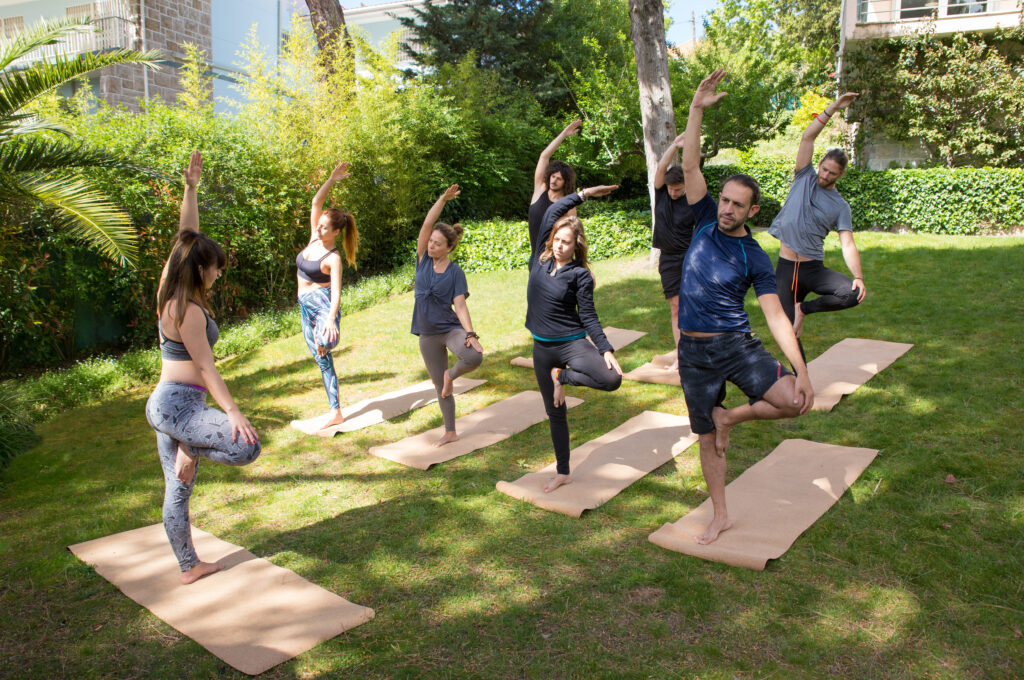Exploring Wellness Trends for 2025
As we progress into the future, the term “wellness” has evolved significantly, transcending its conventional meaning to encompass a holistic approach to health and well-being. Today, wellness trends are pivotal in shaping individuals’ lifestyles and societal norms. The year 2025 presents an exciting landscape for wellness enthusiasts, underscoring the importance of embracing innovative practices that promote physical, mental, and emotional health.
Wellness trends can be best understood as a reflection of changing societal values and emerging scientific research. These trends often emerge in response to collective challenges faced by individuals, such as stressors brought on by modern living or a growing awareness of mental health issues. As these challenges evolve, so too do the methods and practices individuals adopt to foster their well-being. In 2025, we can anticipate a surge in personalized nutrition strategies that cater to the unique needs of individuals, driven by advancements in technology and a greater emphasis on self-care.
The significance of staying informed about wellness trends cannot be overstated. Gaining insights into these emerging practices allows individuals to make informed choices that positively impact their health. As we prepare to navigate this dynamic landscape, it is crucial to remain open to innovation while also respecting traditional wellness practices that have stood the test of time. This blog post aims to explore the most compelling wellness trends expected to take center stage in 2025, spotlighting the ways in which they can enhance our daily lives and contribute to a healthier society.
Mindfulness and Mental Health Awareness
In recent years, there has been a notable shift towards prioritizing mindfulness and mental health, reflecting an increased awareness of the importance of emotional well-being in our daily lives. As we move into 2025, this trend is expected to gain even more traction, driven by the growing recognition of the benefits that mindfulness practices can bring. Meditation, for instance, has been shown to reduce stress, enhance focus, and improve overall mental health, making it an essential tool for many individuals seeking to cultivate a calmer and more balanced lifestyle. For more on meditation’s benefits, visit Mayo Clinic.
Stress-reduction techniques, such as deep breathing exercises and progressive muscle relaxation, are also gaining prominence as effective methods for managing anxiety and building resilience. Such practices not only contribute to individual well-being but also foster a supportive environment where participants can learn from one another’s experiences. The emphasis on community support cannot be overstated; group sessions and peer-led discussions create a safe space for individuals to share their struggles and find encouragement in their journeys toward mental wellness.

The rise in mindfulness apps serves as a testament to this evolving landscape. Numerous applications now offer guided meditations, mood tracking, and community forums that facilitate interaction among users. These digital tools empower individuals to engage with mindfulness practices at their convenience, making mental health resources more accessible. Moreover, retreats focused on mindfulness and mental health provide immersive experiences, allowing participants to disconnect from their daily stressors and engage deeply with their well-being.
Workplace initiatives are also adapting to these wellness trends, as employers increasingly recognize the impact of mental health on productivity and job satisfaction. Programs that promote mindfulness through workshops, wellness days, and therapy assistance are becoming standard practice in many organizations, illustrating how integral mental health awareness is to modern work culture.
Sustainable Wellness: Eco-Friendly Practices
The convergence of wellness and sustainability has become increasingly prominent, as individuals seek lifestyles that promote personal health while simultaneously considering the health of the planet. This dual focus emphasizes eco-friendly practices that align with a growing awareness of environmental issues. One notable trend is the adoption of plant-based diets. Research consistently points to the health benefits of consuming more fruits, vegetables, and whole grains, which not only contribute to personal wellness but also reduce the environmental footprint associated with meat production. Learn more at World Health Organization. However, for those who still enjoy meat, options like sustainably sourced products from regenerative agriculture are gaining traction—check out Starwalker Organic Farms for a commitment to eco-conscious meat production.

Another significant aspect of sustainable wellness is zero-waste living. This approach encourages individuals to minimize their consumption and waste generation by opting for reusable, biodegradable, or sustainably sourced products. People are increasingly motivated to adopt zero-waste principles in their daily lives, from using reusable shopping bags to embracing bulk buying to reduce packaging waste. Such lifestyle choices not only promote personal health through cleaner living environments but also contribute to broader efforts to combat pollution and resource depletion. As more advocates push for these practices, the message of sustainable wellness becomes clearer: healthy living and environmental stewardship go hand in hand.
The use of natural and organic wellness products also underscores the importance of integrating sustainability into personal health regimens. Consumers are gravitating towards brands that prioritize eco-friendly sourcing and ethical production methods. This trend includes everything from organic skincare to natural supplements made from sustainably harvested ingredients. For those with sensitive skin, building a tailored routine can enhance this approach—explore options at Afflux. Brands that demonstrate a commitment to sustainable wellness not only gain customer loyalty but also inspire other companies to adopt similar practices.
Tech-Driven Wellness Solutions
The integration of technology into the wellness industry has revolutionized how individuals approach their health and lifestyle. The emergence of wearable health devices, such as fitness trackers and smartwatches, allows users to monitor vital health metrics, including heart rate, sleep patterns, and activity levels. This data empowers consumers to make informed decisions regarding their wellness journeys, fostering a proactive approach to health management tied to personalized nutrition.
In addition to wearable technology, fitness applications have gained immense popularity, offering tailored workout plans and nutrition guidance. These apps cater to a wide range of fitness levels, enabling users to find routines that suit their physical capabilities while providing progress tracking features that encourage accountability. Furthermore, many of these platforms foster a sense of community through social sharing options, motivating individuals to stay committed to their health aspirations.

Telehealth services represent another significant advancement, offering personalized healthcare solutions from the comfort of home. Patients can access a range of professionals, including doctors, mental health counselors, and nutritionists, through virtual consultations. This accessibility has expanded the reach of health services, breaking down geographical barriers and facilitating timely intervention. The growing acceptance of telehealth is particularly pertinent in mental wellness, with online resources available for counseling and support.
Moreover, the rise of virtual fitness classes has transformed traditional fitness paradigms. Diverse platforms are now available, providing users with the flexibility to engage in workouts led by experienced instructors, thus making fitness more accessible and inclusive. The multiple modalities offered, from yoga to high-intensity interval training, cater to various interests and preferences, ensuring that individuals can find activities they enjoy.
Holistic Health Approaches
In recent years, a significant shift towards holistic health practices has emerged, reflecting a more integrative view of wellness that encompasses physical, emotional, and spiritual well-being. Holistic health recognizes that the mind, body, and spirit are interconnected and that treating one aspect can affect the whole system. As such, an increasing number of individuals are seeking out modalities, including acupuncture, aromatherapy, and energy healing, each offering unique benefits tailored to individual needs.
Acupuncture, for example, is an ancient practice rooted in Traditional Chinese Medicine that involves the insertion of thin needles into specific points on the body. This technique is believed to stimulate the flow of energy, or “qi,” and has gained scientific validation for its effectiveness in alleviating pain and reducing stress. More people are turning to acupuncture not only for its therapeutic benefits but also for its ability to promote a sense of balance and overall well-being.

Aromatherapy, another popular holistic health approach, harnesses the therapeutic properties of essential oils derived from plants for physical and emotional health. The science supporting aromatherapy suggests that certain scents can influence brain activity, potentially reducing anxiety and enhancing mood. As awareness of mental health continues to grow, more individuals are integrating aromatherapy into their self-care routines.
Moreover, energy healing practices such as Reiki offer an integrative approach that focuses on the subtle energy fields of the body. Through gentle touch or proximity, practitioners aim to promote relaxation and healing by clearing energy blockages. The increasing acceptance of energy healing reflects a broader understanding of holistic health that values individualized care and personal empowerment.
Personalized Nutrition: The Future of Eating
As we progress towards 2025, the realm of nutrition is poised for significant evolution, characterized by innovative trends that are reshaping dietary paradigms. One of the most notable is the increasing popularity of functional foods within personalized nutrition. These are food products that offer health benefits beyond basic nutrition, such as probiotics, omega-3 fortified foods, and plant-based alternatives enriched with vitamins and minerals. As consumers become more health-conscious, the demand for foods that enhance well-being, improve immune function, and support mental health is expected to surge.
Another pivotal aspect of personalized nutrition is the rise of genetic testing and biometrics. This new approach takes into account individual genetic predispositions that can influence dietary needs and preferences. By tailoring diets to genetic profiles, individuals can optimize their nutrition, manage health conditions more effectively, and achieve their wellness goals. Services that analyze genetic data and offer customized meal plans are anticipated to become mainstream by 2025.

The emphasis on gut health is also set to dominate personalized nutrition trends, with an increasing body of research highlighting its importance to overall health. Fermented foods, rich in probiotics, and prebiotics that nurture gut microbiota will increasingly find their way into everyday meals. This ongoing focus on the gut-brain connection is reshaping perceptions of healthy eating.
Cultural influences and culinary creativity will further transform perceptions of healthy eating. Diverse culinary traditions are inspiring innovative dishes that not only cater to health needs but also celebrate flavor and enjoyment. By incorporating these trends into daily meals, individuals can embrace a more holistic approach to personalized nutrition.
Fitness Innovations and Active Lifestyles
As we move towards 2025, the realm of fitness is witnessing a dynamic transformation, characterized by the emergence of unconventional workout routines and the integration of cutting-edge technology. One of the most significant wellness trends is the application of augmented reality (AR) in fitness experiences. This innovative approach allows individuals to engage in immersive workouts that can motivate and enhance performance.

Moreover, the shift towards community-oriented fitness is gaining momentum. Groups and classes that celebrate diversity and inclusivity are becoming the norm, promoting a welcoming atmosphere for participants from all walks of life. This development not only fosters camaraderie but also emphasizes the necessity of finding enjoyable ways to stay active. Programs focused on social interaction create a sense of belonging, which is paramount for long-term adherence to physical activity.
Experts recommend that individuals choose fitness regimens that resonate with them personally to ensure that exercise remains a sustainable part of daily life. This could involve choosing unique classes such as aerial yoga, dance-inspired HIIT, or outdoor boot camps that offer variety and excitement. The emphasis on enjoyment and sustainability in fitness underlines the importance of personal preference.
The Role of Community in Wellness
As we look towards the future, the role of community in wellness trends is becoming increasingly significant. The essence of wellness is not solely rooted in individual practices but also in the social connections we foster. Recent studies indicate that strong social ties can lead to improved health outcomes, both physically and mentally.
Local wellness groups have emerged as a popular trend, providing spaces for individuals to connect and share their health journeys. These groups often focus on themes such as nutrition, fitness, and mental well-being, allowing participants to learn from one another and receive encouragement. The collaborative spirit of these wellness communities cultivates a sense of belonging and accountability.

In addition to traditional gatherings, the concept of community wellness has expanded into innovative initiatives such as community gardens. These gardens not only provide fresh produce but also serve as meeting points for individuals to come together, exchange knowledge, and support each other’s health initiatives. Such interactions enhance emotional well-being by fostering friendships and nurturing a sense of purpose.
Furthermore, social platforms dedicated to health have revolutionized the way individuals connect. Online communities offer support groups that transcend geographical boundaries, allowing members to share their experiences and insights. These digital platforms play a crucial role in promoting wellness trends by creating inclusive environments.
Looking Ahead: The Future of Wellness Trends
As we look ahead to 2025, it is evident that wellness trends are an ever-evolving landscape that continuously adapts to meet the needs of society. The trends outlined in this blog post showcase a significant shift towards a holistic health approach, placing emphasis not only on physical fitness but also on mental and emotional well-being. With the rise of personalized nutrition, technology-driven solutions, and a renewed focus on sustainability, individuals are better equipped than ever to take charge of their health journeys.
In the realm of wellness, mindfulness and mental health are expected to gain greater prominence, encouraging individuals to integrate practices such as meditation and stress management into their daily routines. This trend aligns with the growing acknowledgment that mental health is as crucial as physical health, fostering a more balanced lifestyle. Furthermore, as advancements in technology continue to emerge, we are likely to witness an increase in wearable health devices and telehealth options.
Engaging with these wellness trends is not just a personal choice but a collective movement towards a healthier future. It is essential for readers to reflect on which of these trends resonate with them personally and how they can incorporate these elements into their daily lives. Ultimately, embracing the future of wellness is about finding balance, health, and fulfillment in an ever-changing world.





